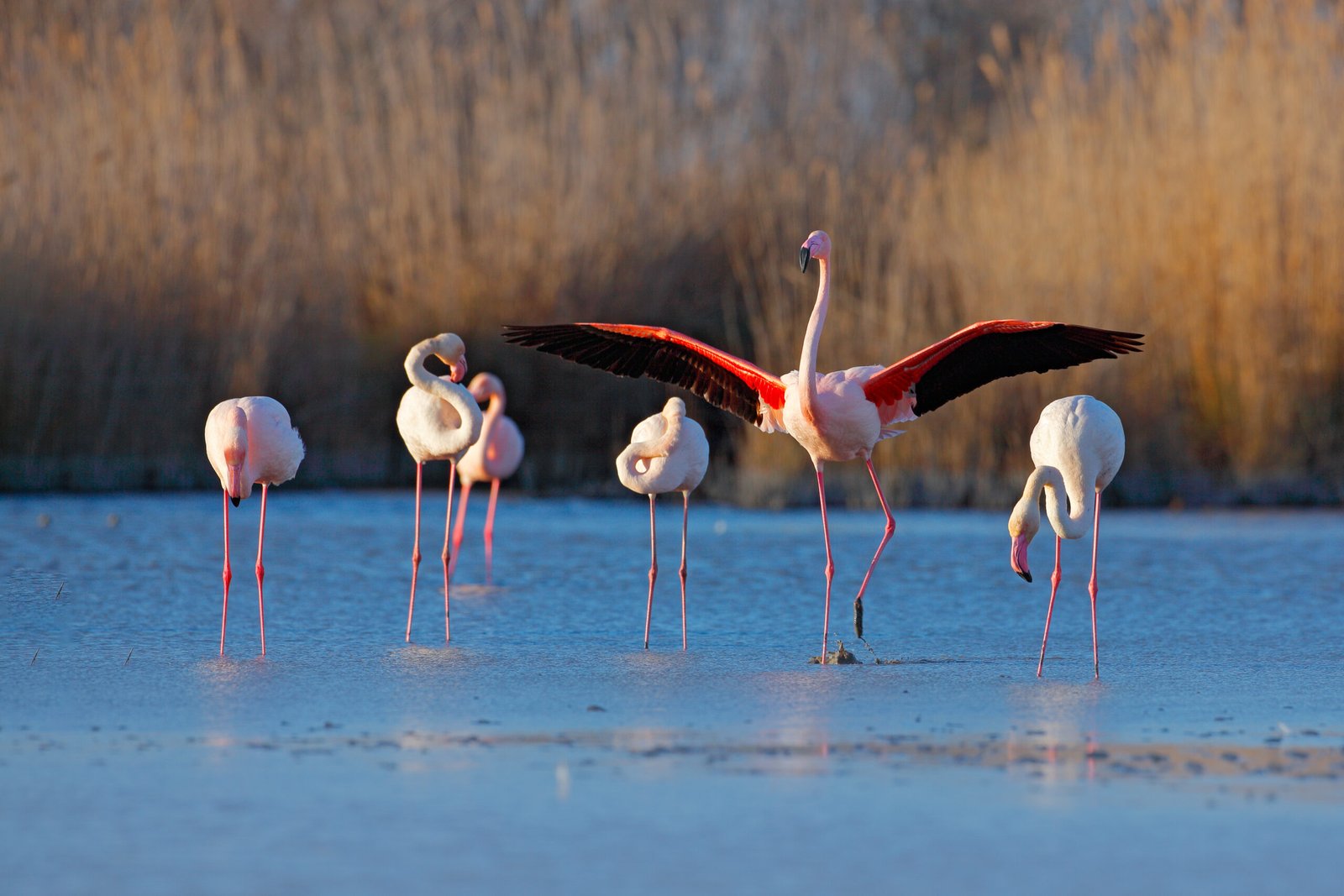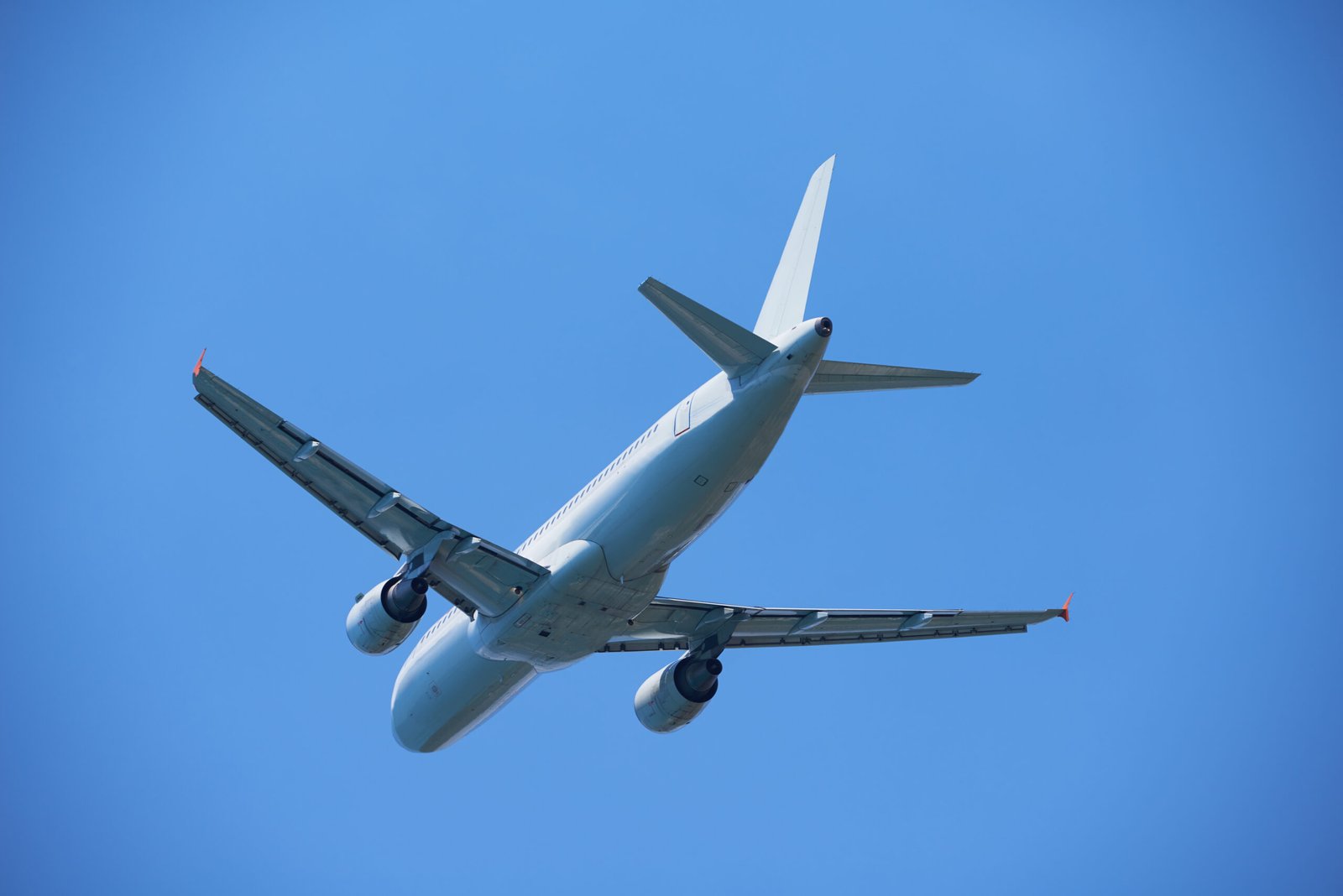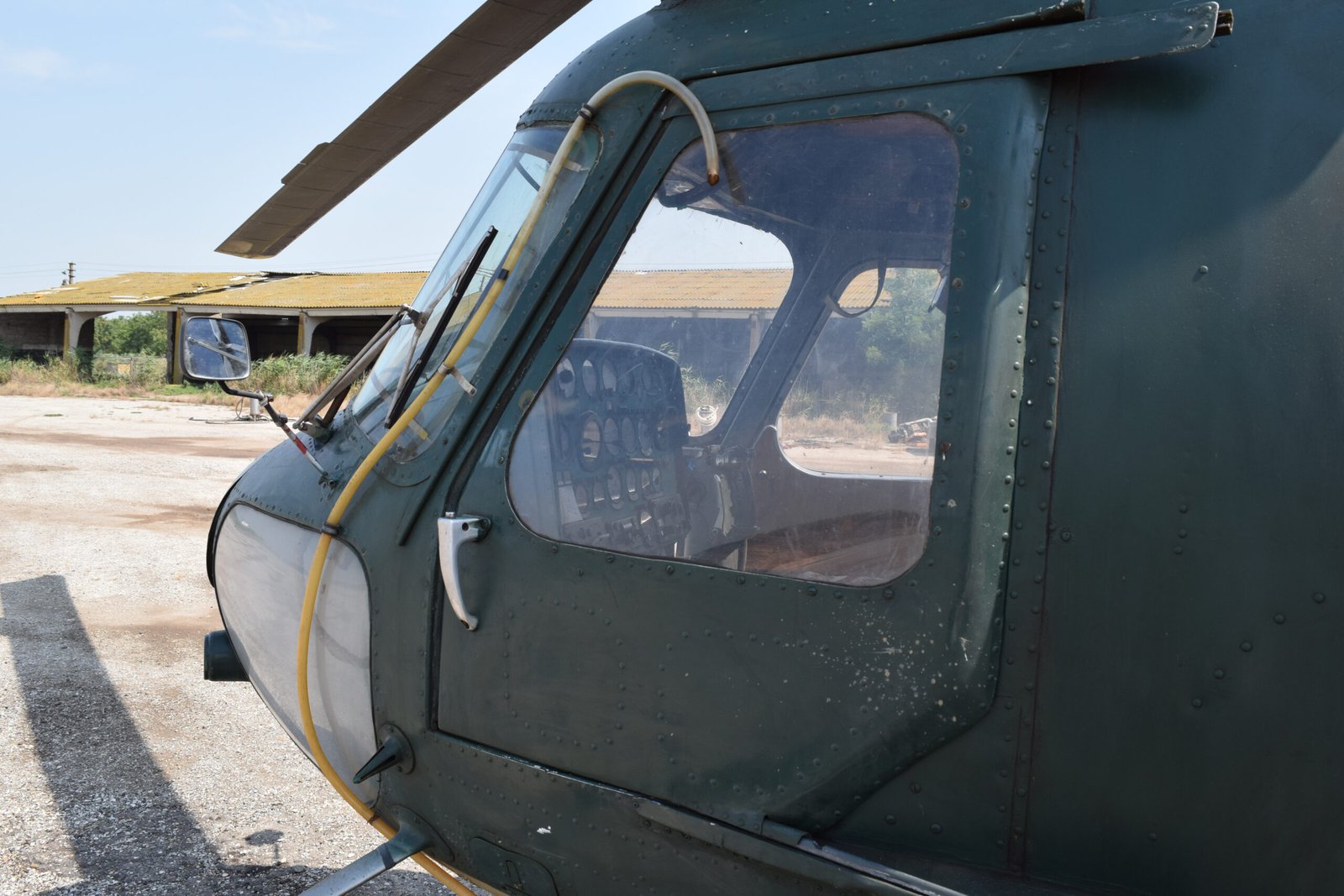Blog Today’s Trends
“Pilot Insights: Your gateway to the world of aviation, offering expert advice, training tips, and industry news for aspiring and seasoned pilots.”
High-Flying Careers: Navigating Your Path in the Aviation Industry
The aviation industry, with its boundless opportunities and exhilarating prospects, is a realm where dreams take flight. For those yearning to soar through the skies, understanding the educational pathways and resources available is crucial. This post will guide you through various types of aviation schools, essential blogs and websites for insights, as well as information on FAA-approved flight training programs.
### Types of Aviation Courses
When it comes to pursuing a career in aviation, a myriad of specialized courses awaits aspiring aviators. Here’s a breakdown of some common types:
1. **Pilot Training Programs**: These are tailored for those aiming to become professional pilots. They encompass private pilot licenses (PPL), instrument ratings (IR), commercial pilot licenses (CPL), and airline transport pilot licenses (ATPL). Many schools offer comprehensive packages that combine ground school with in-flight training.
2. **Aviation Management Degrees**: For individuals interested in the business side of flying, aviation management programs provide critical knowledge about airport operations, air traffic control systems, and airline management practices. These degrees often blend practical experiences with theoretical frameworks.
3. **Aircraft Maintenance Programs**: These courses train students in maintaining and repairing aircraft systems and structures. Graduates usually pursue certification from the Federal Aviation Administration (FAA) to work as certified maintenance technicians.
4. **Aerospace Engineering**: For those fascinated by the design and development aspects of aircraft, aerospace engineering offers an advanced understanding of aerodynamics, propulsion systems, materials science, and structural integrity.
5. **Flight Attendant Training**: This program equips future cabin crew members with essential skills such as safety protocols, customer service techniques, and emergency response procedures—crucial for ensuring passenger comfort during flights.

6. **Simulated Flight Training**: Many training institutions now incorporate advanced simulators into their curriculum. These provide realistic environments where students can practice maneuvers without leaving the ground.
### Valuable Resources for Aspiring Aviators
To stay updated with industry trends or seek guidance during your journey into aviation, numerous blogs and websites serve as invaluable resources:
**Airline Pilot Central**: A hub for pilots featuring forums discussing airlines hiring pilots and recent job postings.
**Flying Magazine**: A long-standing publication covering everything from flying tips to gear reviews.
**Plane & Pilot Magazine**: Focuses on pilot stories along with gear recommendations.
**The Points Guy**: Great for travelers wanting insights into maximizing travel rewards related to flights.
Social media platforms also have thriving communities devoted to aviation:
Join Facebook groups like “Aspiring Pilots” or “Aviation Enthusiasts.”
Follow Twitter accounts such as @AeroNews or @PilotNetwork to get real-time updates.
LinkedIn can be useful too! Connecting with professionals in the field can open up networking opportunities that may lead to internships or job placements down the line.
### FAA Flight Schools & Simulators
If you’re ready to embark on your flight training journey, look no further than FAA-approved flight schools across the country. These institutions adhere strictly to federal safety regulations while providing high-quality education aimed at producing proficient pilots.
Flight schools typically offer a combination of classroom instruction alongside practical experience using sophisticated flight simulators—replicating real-world flying conditions without stepping outside! Popular simulator brands like Redbird or Frasca are commonly found in many training centers.

In conclusion, whether you’re eyeing a cockpit seat or an office managing air traffic logistics, embarking on an aviation career requires thorough research into educational pathways along with consistent engagement within industry networks. The sky’s not just the limit; it’s your new beginning!
From Biplanes to Drones: The Evolution of Aviation Technology
The realm of aviation has undergone a breathtaking transformation since the days when biplanes ruled the skies. As we soar into a new age defined by precision, efficiency, and innovation, it’s fascinating to explore how aviation technology has evolved and what it means for future generations. This journey isn’t just about the machines; it’s also about the education that shapes future aviators and enthusiasts.
### Aviation Schools: A Diverse Learning Landscape
Today’s aviation schools offer an impressive array of courses tailored to meet diverse interests within the field. Whether you’re dreaming of becoming a pilot, air traffic controller, or aerospace engineer, there’s a specialized program waiting for you.
1. **Pilot Training Programs**: These courses cover everything from private pilot licensing to advanced certifications like instrument ratings or commercial licenses. Aspiring pilots can choose between in-person training at flight schools or online theoretical courses.
2. **Aeronautical Engineering**: This track focuses on designing and constructing aircraft, including studying aerodynamics, materials science, and propulsion systems. Universities with strong engineering programs often provide hands-on experience with simulations and lab work.
3. **Air Traffic Control (ATC)**: ATC programs prepare students for careers managing air traffic flow in increasingly busy skies. Courses typically include simulation training that mimics real-life scenarios.
4. **Aviation Management**: For those interested in the business side of aviation—such as airport management or airline operations—aviation management programs offer insights into logistics, finance, and regulatory compliance.
5. **Drone Technology Courses**: With drones revolutionizing industries from agriculture to delivery services, specialized courses are emerging that focus on unmanned aerial systems (UAS) operations, regulations, and application development.
### Dive Deeper with Online Resources
As you immerse yourself in aviation studies or simply seek to stay updated on trends and technologies shaping this dynamic field, several blogs and websites are pure gold:
**AirlineReporter.com**: Delve into airline news with a focus on travel experiences.
**FlyingMagazine.com**: A comprehensive source for articles on flight safety tips and aircraft reviews.
**TheAirCurrent.com**: An insightful blog covering aviation business issues and market analysis.
**AviationWeek.com**: Offers industry professionals critical news regarding aerospace technologies.
Social media platforms also play an essential role in connecting enthusiasts:
Follow #AvGeek on Twitter for tweets from fellow aviation lovers.
Join Facebook groups dedicated to specific aircraft types or flying communities.
Check out Instagram accounts showcasing stunning aerial photography—#DronesDaily is particularly popular among drone aficionados.
### Flight Schools & Simulators
When it comes down to practical training experiences, FAA-certified flight schools pave the way for aspiring pilots across the United States. These institutions adhere strictly to Federal Aviation Administration (FAA) guidelines ensuring quality instruction:
1. **Local Flight Schools**: Often affiliated with regional airports, these schools typically have fleets of small aircraft alongside experienced instructors ready to guide your first flights.
2. **University Programs**: Many colleges now offer Bachelor’s degrees in Aviation Science coupled with extensive flight training opportunities through their own FAA-approved flight schools.
3. **Simulator Training Centers**: Advanced simulators replicate cockpit environments providing invaluable practice without leaving the ground! Environments range from general aviation planes to complex commercial jets.
In conclusion, as we reflect on our journey from biplanes buzzing through open skies to sophisticated drones navigating urban landscapes autonomously, it’s evident that education will remain foundational in this ongoing evolution of aviation technology. For anyone eager to take part in shaping tomorrow’s skies—now is undeniably an exciting time!

Flying Green: How Aviation is Tackling Climate Change
As the world grapples with the pressing issue of climate change, the aviation industry stands at a crucial crossroads. While air travel has long been associated with significant carbon emissions, a wave of innovation and education is transforming how we think about flying. From new sustainable technologies to eco-conscious training programs, the aviation sector is actively working to reduce its environmental footprint. Let’s explore how aviation schools are adapting their courses, discover valuable resources in the field, and examine FAA-approved training options that emphasize sustainability.
*Aviation Schools: Types of Courses**
Aviation education has evolved significantly over recent years to address both traditional flying skills and emerging green technologies. Various types of courses are now available to aspiring aviators:
1. **Pilot Training Programs:** Traditional flight schools offer comprehensive pilot training that includes ground school instruction on aerodynamics, navigation, and regulations alongside practical flight experience. With an increasing focus on hybrid and electric aircraft, many programs are beginning to incorporate lessons on environmentally friendly flying practices.
2. **Aeronautical Engineering:** These courses cover aircraft design and technology with an emphasis on developing more efficient engines and lighter materials that reduce fuel consumption. Students learn about sustainable aviation fuels (SAFs) and their potential role in mitigating climate impact.

3. **Air Traffic Management:** This discipline focuses on optimizing flight paths using advanced technology to minimize delays and fuel usage during takeoff, cruise, and landing phases. Emphasis is placed on reducing carbon footprints while maintaining safety standards.
4. **Sustainable Aviation Programs:** Some institutions now offer specialized tracks dedicated entirely to green aviation technologies—teaching students about renewable energy sources for aircraft power as well as emissions reduction strategies.
*Essential Resources for Aviation Enthusiasts**
For those interested in staying updated on green initiatives within aviation or seeking knowledge beyond classroom walls, numerous blogs, websites, and social media platforms exist:
**Blogs:**
– *The Air Current* offers insights into current trends affecting the airline industry.
– *GreenAir Online* focuses specifically on sustainability in air transport.
– *FlightGlobal* provides news updates regarding technological advancements.
**Websites:**
– The International Air Transport Association (IATA) outlines global efforts toward achieving net-zero emissions by 2050.
– Sustainable Aviation Fuel Users Group presents research findings related to SAF development.
**Social Media Platforms:**
– Twitter accounts like @AeroTimeNews showcase breaking news stories related to eco-friendly initiatives.
– LinkedIn groups such as “Sustainable Aviation” foster discussions among professionals passionate about greener skies.
*FAA Flight Schools: Training for Tomorrow’s Pilots**
When selecting a flight school or simulator program approved by the Federal Aviation Administration (FAA), aspiring pilots should consider those integrating modern sustainability practices into their curriculum:
Many FAA-certified flight schools now provide simulator sessions that allow trainees to practice emergency scenarios in electric aircraft models or learn about fuel-efficient flying techniques without leaving a hefty carbon footprint behind.
Reputable institutions like Embry-Riddle Aeronautical University have begun offering degrees focused not only on traditional piloting but also include coursework centered around sustainable practices within aviation operations.
Ultimately, as the industry embraces greener alternatives—from innovative technologies in aircraft design to educational programs aimed at fostering environmentally responsible pilots—the future of aviation looks brighter than ever before. By investing time into understanding these developments through various resources, we can all become part of this crucial transformation toward sustainability in our skies!
Behind the Cockpit: Unveiling the Secrets of Flight Operations
Aviation is a realm filled with intrigue, technical prowess, and a touch of magic. But what really happens behind the cockpit doors? To understand this fascinating world better, one must delve into aviation schools, online resources, and flight operations training that prepare aspiring pilots for their soaring careers.
*Aviation Schools: A Diverse Spectrum of Courses**
Embarking on a journey to become a pilot starts at aviation schools, where various courses cater to different aspirations. The most common types include:
1. **Private Pilot License (PPL)**: This foundational course teaches students how to fly privately without compensation. It covers basic flight maneuvers, navigation skills, and emergency procedures.
2. **Commercial Pilot License (CPL)**: For those aiming to turn flying into a profession, CPL courses dive deeper into advanced flying techniques and operational regulations.
3. **Instrument Rating (IR)**: This qualification allows pilots to navigate through clouds and poor weather conditions using instruments alone — critical for safety in commercial aviation.
4. **Flight Instructor Certification**: Experienced pilots often pursue this path to teach others. It not only enhances their skills but also expands career opportunities within the industry.
5. **Airline Transport Pilot (ATP)**: The pinnacle of pilot certifications, this rigorous program prepares individuals for commanding larger aircraft in commercial airlines.
These educational pathways are essential stepping stones toward mastering the skies.
*Navigating Aviation Resources: Blogs and Websites**
In addition to formal education, countless online resources offer insights into aviation trends, tips for aspiring pilots, and updates on industry news. Below is a curated list of some noteworthy blogs and websites:
**Airliners.net**: A treasure trove for aviation enthusiasts featuring forums discussing everything from aircraft spotting to airline news.
**Flying Magazine**: With articles ranging from piloting techniques to gear reviews, this publication has been an essential read since 1927.
**Pilot’s Digest**: Packed with practical advice and real-life experiences from seasoned aviators.
**The Aviation Herald**: An indispensable source that publishes reports on aviation incidents worldwide—an eye-opener about the risks involved in flying.
Social media platforms also serve as rich veins of information:
**Instagram** allows users like @pilotlifeofficial or @aviationdaily to share breathtaking aerial views alongside personal stories from the cockpit.
On Twitter, follow hashtags like #AvGeek or accounts such as @FlyingMag for quick updates on industry happenings in real time.
YouTube channels like ‘Captain Joe’ provide entertaining yet informative content that demystifies complex topics related to flying.
*FAA Flight Schools & Simulators**
When considering your training options in the U.S., FAA-certified flight schools stand out as pillars of quality education and safety standards. These institutions guide students through both theoretical knowledge and hands-on experience with advanced simulators—tools vital for honing skills before hitting the open skies.
Many FAA-approved programs utilize sophisticated flight simulators that replicate real-world flying scenarios without leaving the ground—a perfect way for students to practice emergency procedures or learn new maneuvers safely. These simulators can mimic various weather conditions and aircraft systems malfunctions; invaluable experiences that build confidence before taking command of an actual plane.

In summary, pursuing a career in aviation is not just about learning how to fly; it encompasses understanding complex operational protocols while staying updated with industry trends through diverse resources available online. Whether you’re dreaming of soaring through clouds or teaching others how to navigate them safely, remember that every great pilot starts by mastering what goes on behind the cockpit door!
Soaring High: The Future of Aviation Technology
The aviation industry is on the cusp of a technological revolution that promises to reshape how we think about air travel. As innovation takes flight, aspiring pilots and aviation enthusiasts are presented with unprecedented opportunities for education and growth. In this post, we’ll explore different types of aviation schools, delve into essential blogs and websites, and highlight FAA-certified flight schools.
### Types of Aviation Courses
Aviation schools offer a variety of courses tailored to diverse interests within the field. Here are some key categories:
1. **Pilot Training Programs**: These courses provide foundational knowledge for aspiring pilots. They often include ground school, flight training with certified instructors, and simulator sessions that cover everything from basic maneuvers to advanced navigation techniques.
2. **Aircraft Maintenance Engineering**: For those inclined towards the technical side of flying, these programs focus on aircraft systems, troubleshooting, maintenance protocols, and safety regulations. Students gain hands-on experience working on real aircraft.

3. **Aviation Management**: This course streamlines the business side of aviation by teaching students about airport operations, airline management, regulatory compliance, and marketing strategies specific to the industry.

4. **Air Traffic Control Training**: Critical for maintaining safety in busy airspaces, these programs train students in communication skills, radar operation, and crisis management necessary for effective air traffic control.
5. **Drone Technology Courses**: With unmanned aerial vehicles gaining traction across various sectors—such as delivery services and agriculture—these courses prepare students for careers in drone piloting and operations.
### Essential Aviation Blogs & Websites
Staying informed is crucial in an ever-evolving field like aviation. Here’s a curated list of blogs and websites that avid followers should bookmark:
**Flying Magazine (flyingmag.com)**: A treasure trove for enthusiasts featuring news articles, product reviews, pilot stories, and tips for improving flying skills.
**Airline Reporter (airlinereporter.com)**: This blog offers insights into airline industry news along with personal experiences shared by passionate travelers.
**AvWeb (avweb.com)**: A leading online resource providing up-to-date information on general aviation news including product announcements and technology advancements.
**PilotWorkshops (pilotworkshops.com)**: Focused on enhancing pilot proficiency through workshops led by experienced aviators covering everything from navigation to emergency procedures.
**YouTube Channels like “FlightChops” or “Mentour Pilot”**: Engaging video content that brings flying experiences directly to your screen while offering tips from seasoned pilots.
Social media platforms also serve as valuable resources; following accounts like @AviationWeek or @FlybyWireSim can keep you informed about developments directly impacting the industry!
### FAA Flight Schools & Simulators
When it comes to obtaining your pilot’s license or advancing your skills further, FAA-certified flight schools are indispensable. These organizations meet stringent federal regulations ensuring quality training:
**ATP Flight School**: Known for its comprehensive programs focusing on Airline Transport Pilot certifications.
**Embry-Riddle Aeronautical University**: A leader in aerospace education offering degrees ranging from aeronautics to engineering.
**American Flyers**: This institution provides personalized instruction catering to both beginner pilots and professionals looking to refine their skills.
Additionally, simulators have become an integral part of pilot training programs. Advanced flight simulation technology allows trainees to practice complex scenarios safely before taking off into real skies—a critical component in ensuring safe aviators ready for any situation they may face once airborne.
In conclusion, as we soar into the future of aviation technology—with its promising educational paths and groundbreaking innovations—the sky truly is not the limit; it’s just the beginning! Whether you’re looking to fly high yourself or merely stay informed as an enthusiast, now is an exciting time to engage with all facets of this dynamic industry!




